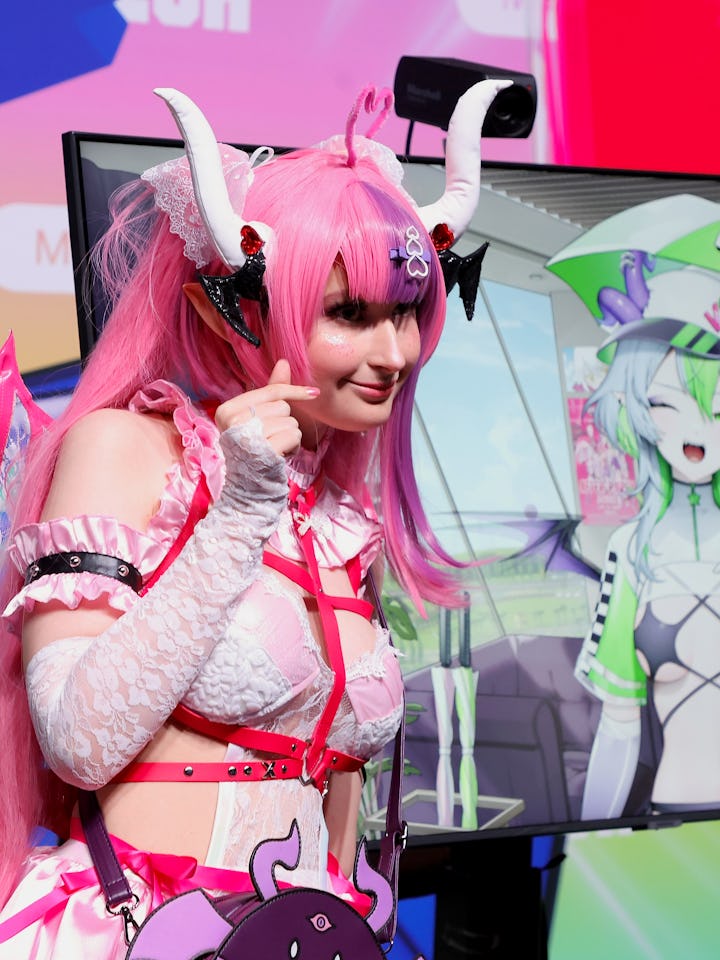The Real Tastemakers of Video Games
Sponsored streams of Concord just didn’t save the game.

In August, PlayStation unleashed a massive marketing campaign to get its live shooter, Concord, in front of millions. Streamers who played the game on their channels mostly gave positive reviews. Weeks later, the game shut down, and in October, Sony announced it was closing the studio down. Concord now faces overwhelming dislike from users on Metacritic. Were the streamers so wrong? And if so, why do game marketers continue to turn to them first to get a game off the ground?
When a video game company is looking to push sales of a game, the go-to option is no longer to show a presentation at an annual convention (RIP E3), to place a splashy poster at a retail store, or even to buy traditional online ads (though that is clearly part of the strategy). A lot of companies now are going straight to individual enthusiasts to push their games. In many cases, getting a large influencer to play a game is enough to have it trend for days.
The “For You” page sitting at the top of your feed has become the new vanguard for determining which video games are fun to play. It’s a huge departure from a decade ago when companies would approach consumers via traditional forms of advertising.
“Now creators are brands, and rather than creators trying to leverage a brand for financial gain or some promotion, I feel like that is reversed, where it’s brands that are often trying to leverage the power, influence, and relevancy of a creator, who are themselves their own brands,” Twitch’s chief marketing officer Rachel Delphin tells Inverse. “The streamer knows their community, they know their aesthetic, they know what’s going to resonate.”
A poster of Hannah Rose on display at this year’s Twitchcon.
For a recent Sims-sponsored stream, streamer and TikToker Hannah Rose, or hannahxxrose, that means to “make it as authentic to me as I can,” playing off the fact that she grew up playing Sims games and eventually partnered with Electronic Arts to try out new content.
“There are some talking points you have to hit, like, make sure you check out the [Cottage Living expansion Sims 4] pack for this reason because they added cows,” Rose says, while laughing, “Or they added this new outfit. So you have to hit all the talking points. But it still comes natural to me.”
The line between content creator and critic too is blurring. Mexican Twitch streamer Alanalarana, 23, said she was flown out to London to try out Call of Duty: Warzone during a testing phase. She’s also worked with games like Fortnite, Valorant, Genshin Impact, and Mortal Kombat.
“In Mexico, there’s many companies that reach out to creators to get publicity,” Alanalarana said. She said if a game sucked and a company asked her to promote it, she would decline. “If I didn't like it, I would say it, but it hasn't happened to me.”
Andre Rebelo, better known as “Typical Gamer” to his millions of followers on YouTube and Fortnite, was one of several creators paid to promote PlayStation’s now-failed live shooter.
Even as the creator class continues to professionalize their reviewing and marketing, the results of such sponsored streams can vary widely, as in the case of Concord.
Andre Rebelo, better known as “Typical Gamer” to his millions of followers on YouTube and Fortnite, was one of several creators paid to promote PlayStation’s now-failed live shooter.
“I was actually sponsored by Concord. I actually enjoyed the game,” Rebelo said. “It was lacking in some parts, for sure, but I enjoyed the game at the core.”
He still has two Concord videos left up on his YouTube channel. The one titled “Typical Gamer Plays Concord!” only received 104,000 views, while one that said he would play Fortnite and then Concord received 443,000 views.
Rebelo offered his guesses as to why the game still failed even though he promoted it to his viewers. He added, “It’s an age-old question I’ve heard from veterans in the industry: Is it the marketing or is it the game that maybe made it succeed?”
Rebelo said, “They did spend a decent amount on influencer marketing. Didn’t really save their game, right? There were other core issues, like price, their rigidness in not wanting to go free-to-play.”
CodeMiko is a popular VTuber on Twitch with some choice thoughts on sponsored streams.
This new form of marketing leverages the relationship that influencers have built with gamers, who may respect and value these creators’ opinions and recommendations. But at the end of the day the relationship a gamer has with a game is a personal one — that can only be influenced so much.
Concord has since shut down and Sony closed the studio, citing the competition in the player versus player first-person shooter genre. The announcement was heavily covered by journalists and content creators alike.
As several streamers told Inverse, if a game isn’t fun, there's not much to be done for it. A few streams could momentarily boost the game but eventually people will find out it sucks.
“Influencers and Twitch streamers are a really good marketing tool to reach out to people,” said Youna Kang, who is better known by her VTuber alias CodeMiko. “But at the end of the day, if your game sucks, no matter how much a Twitch streamer will say it's good, like it's just not going to gain traction.”